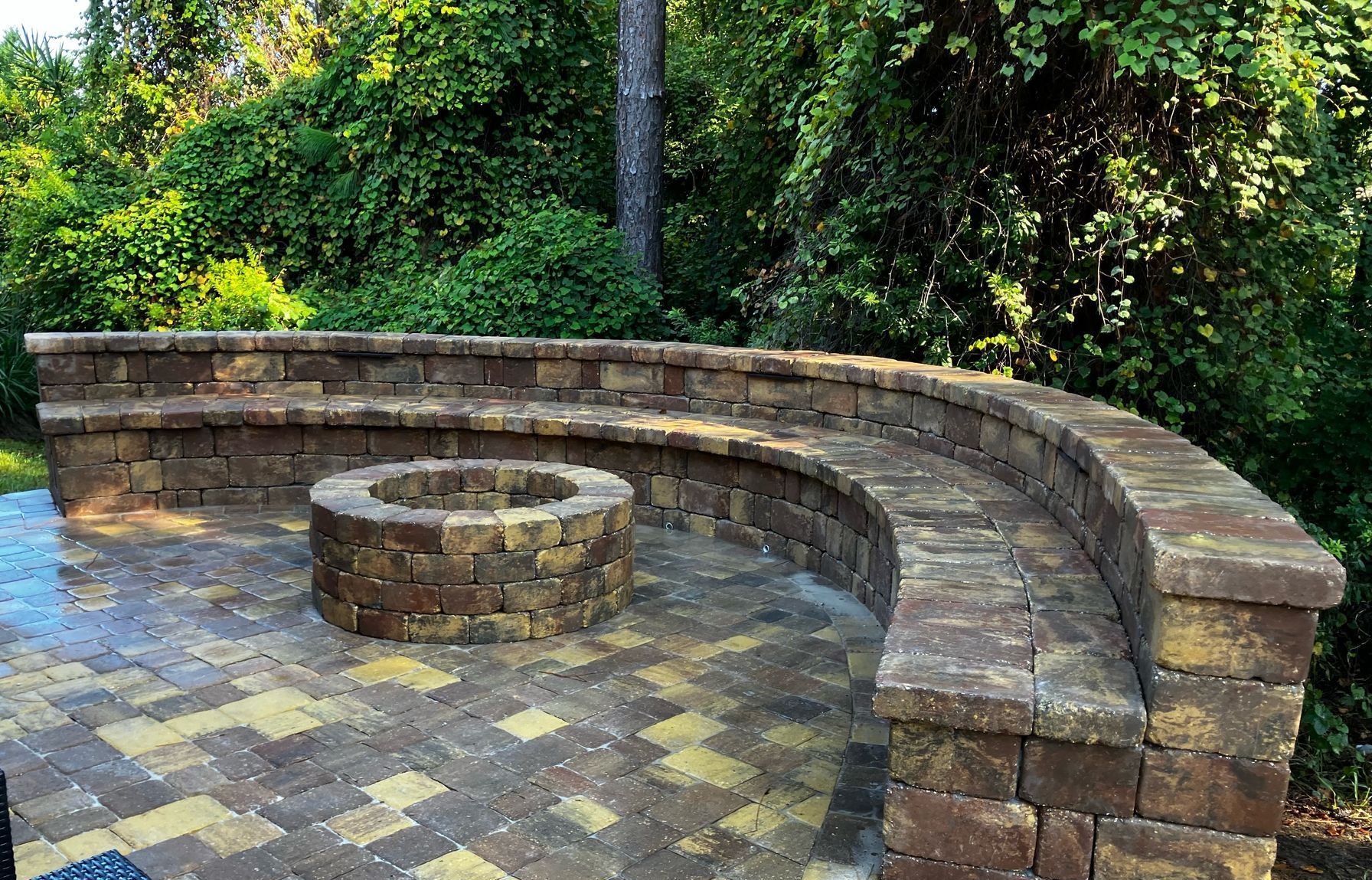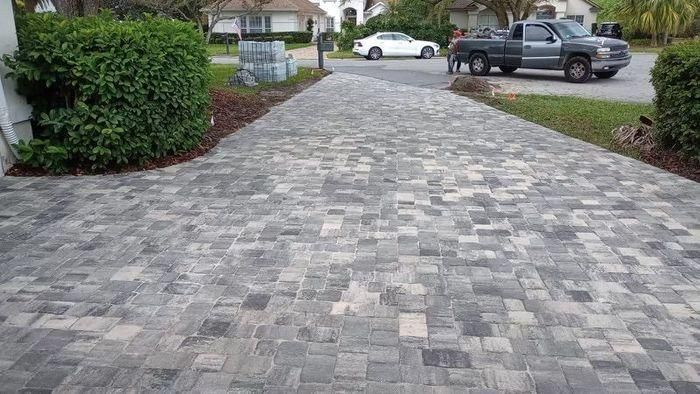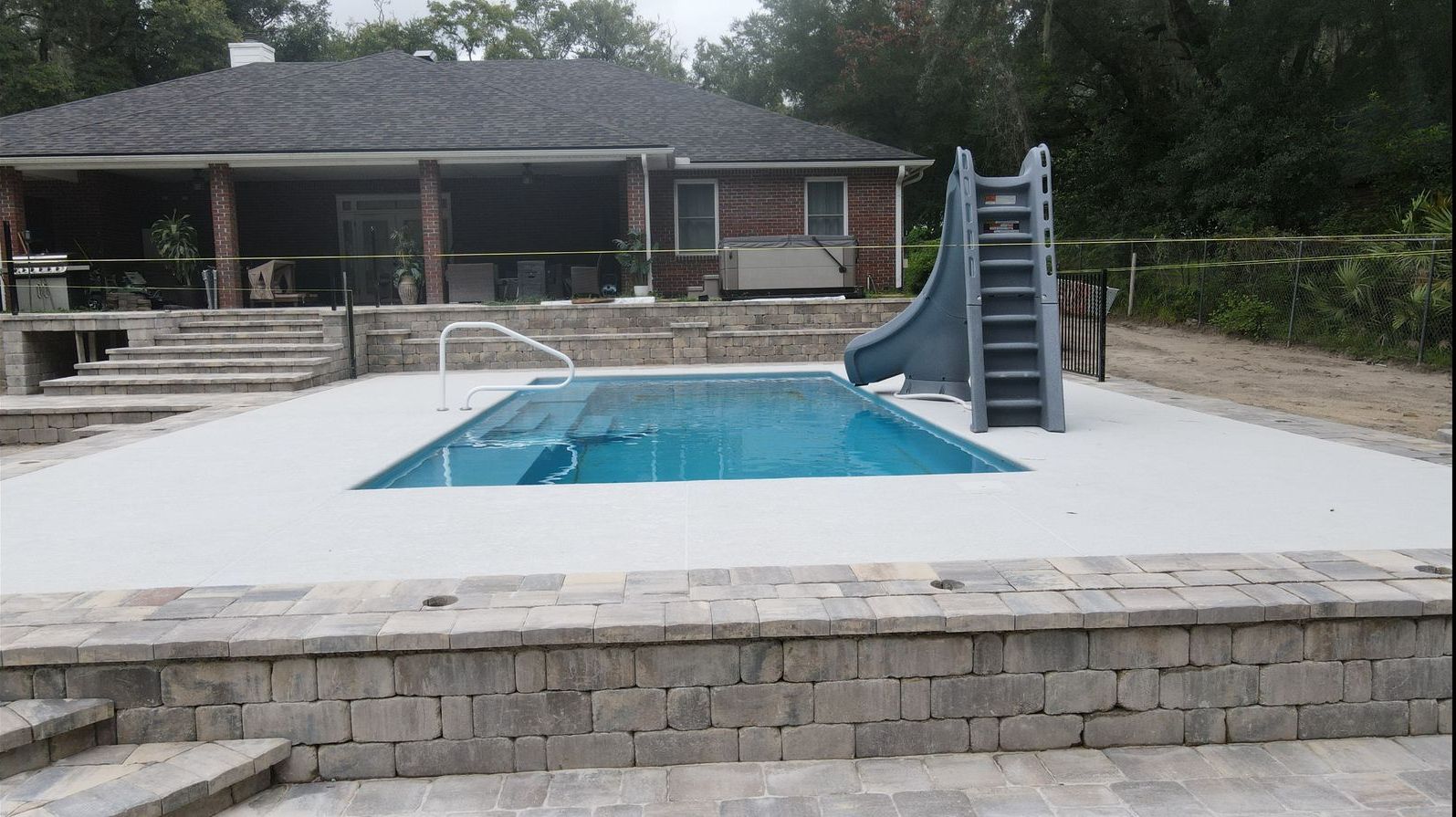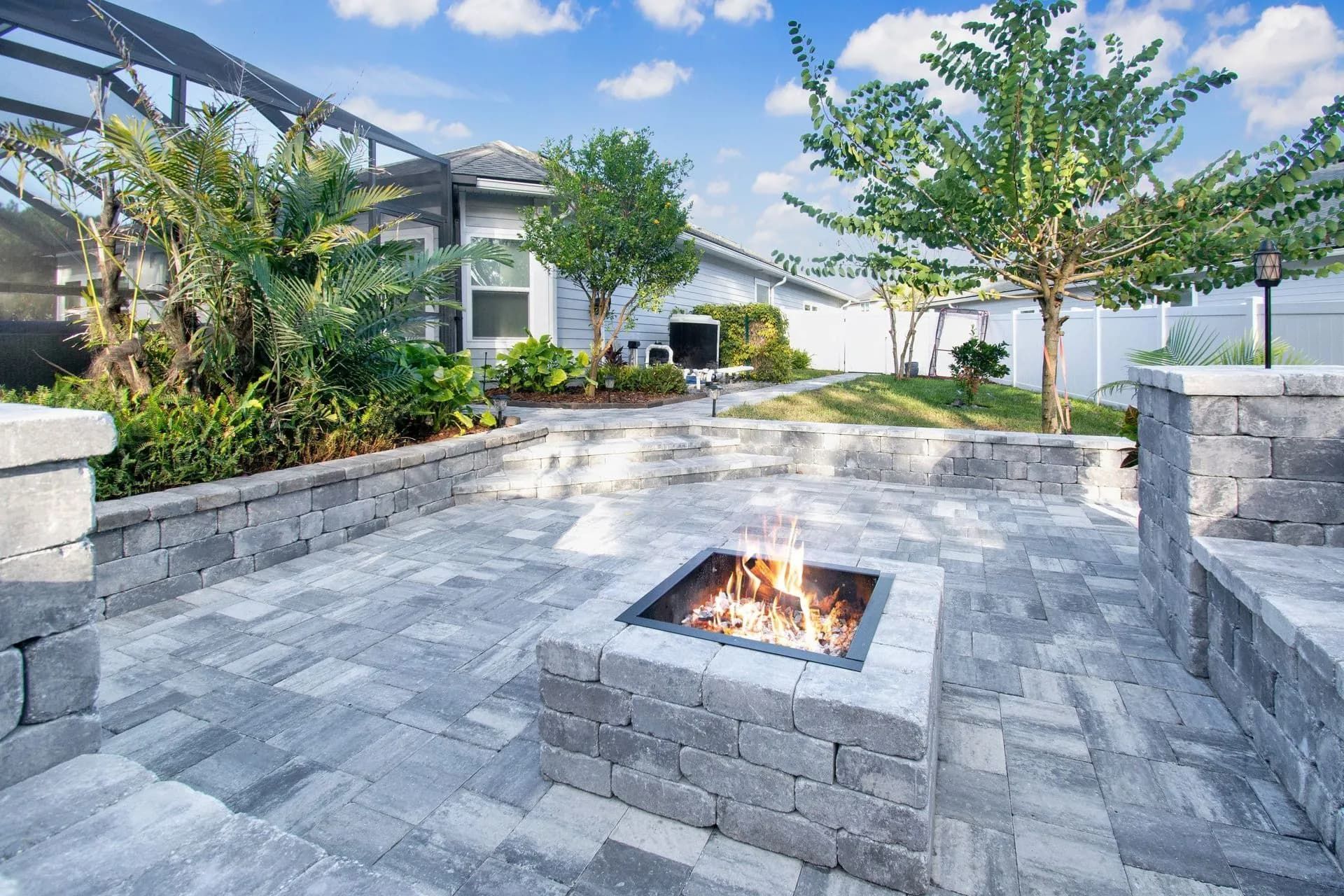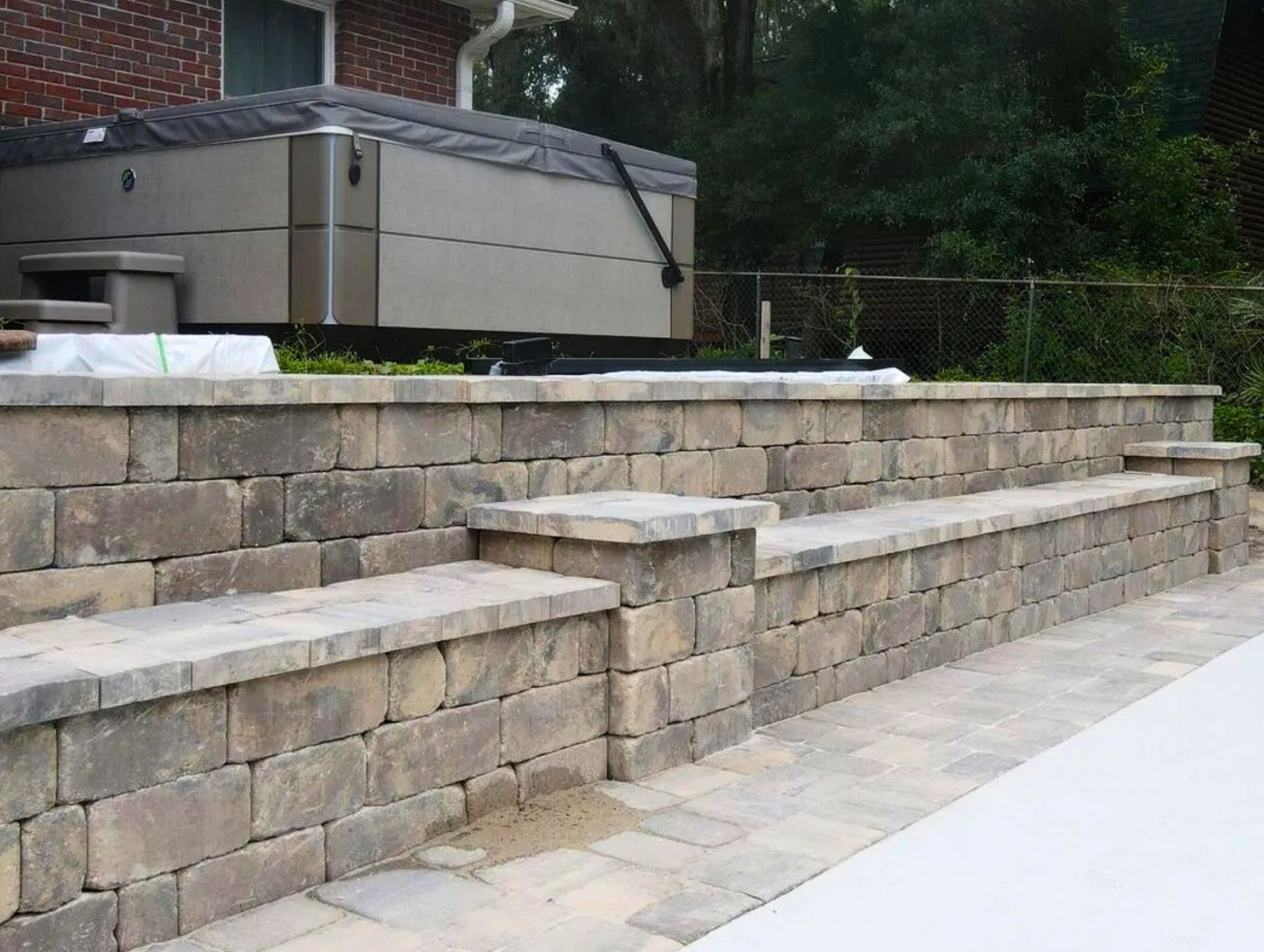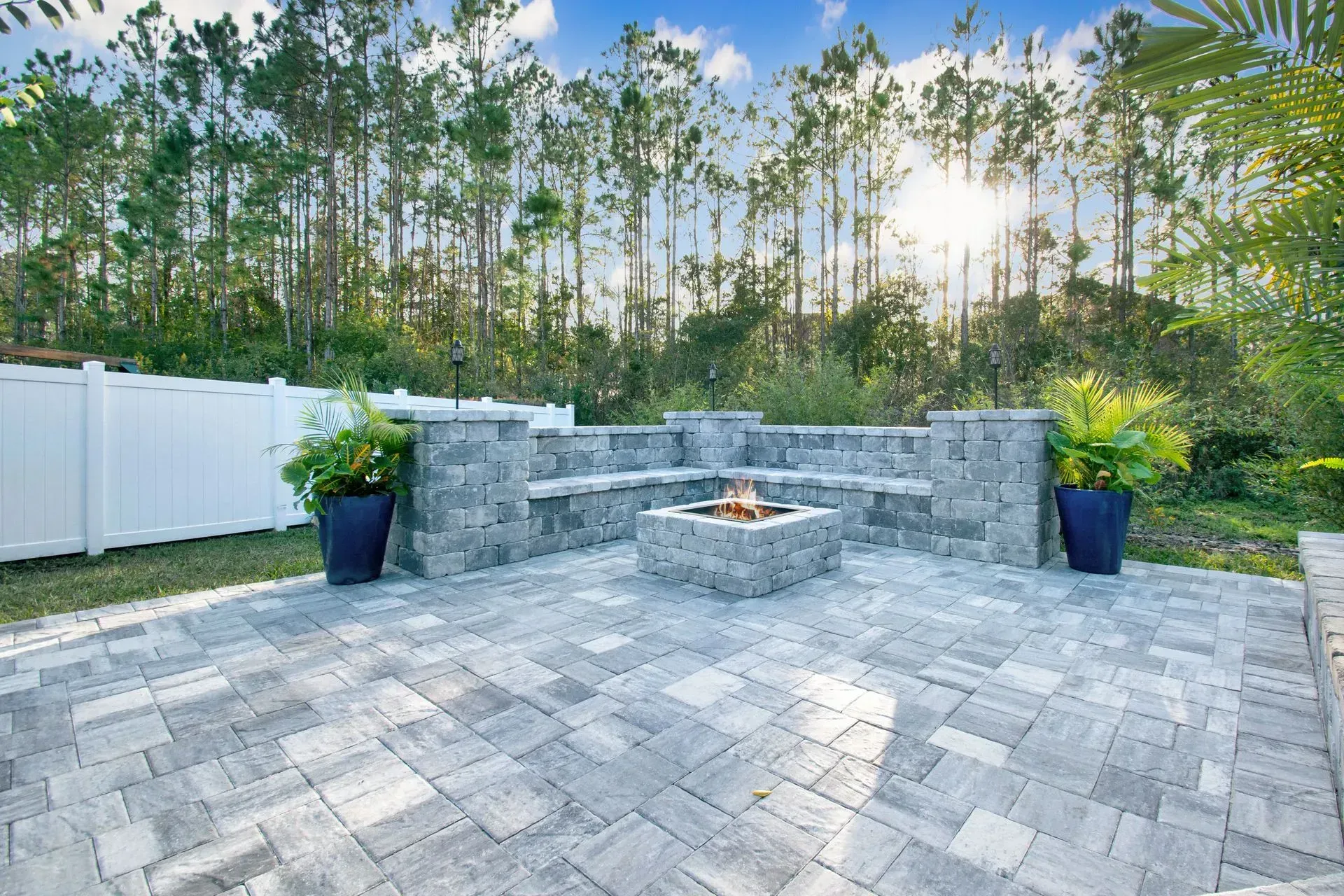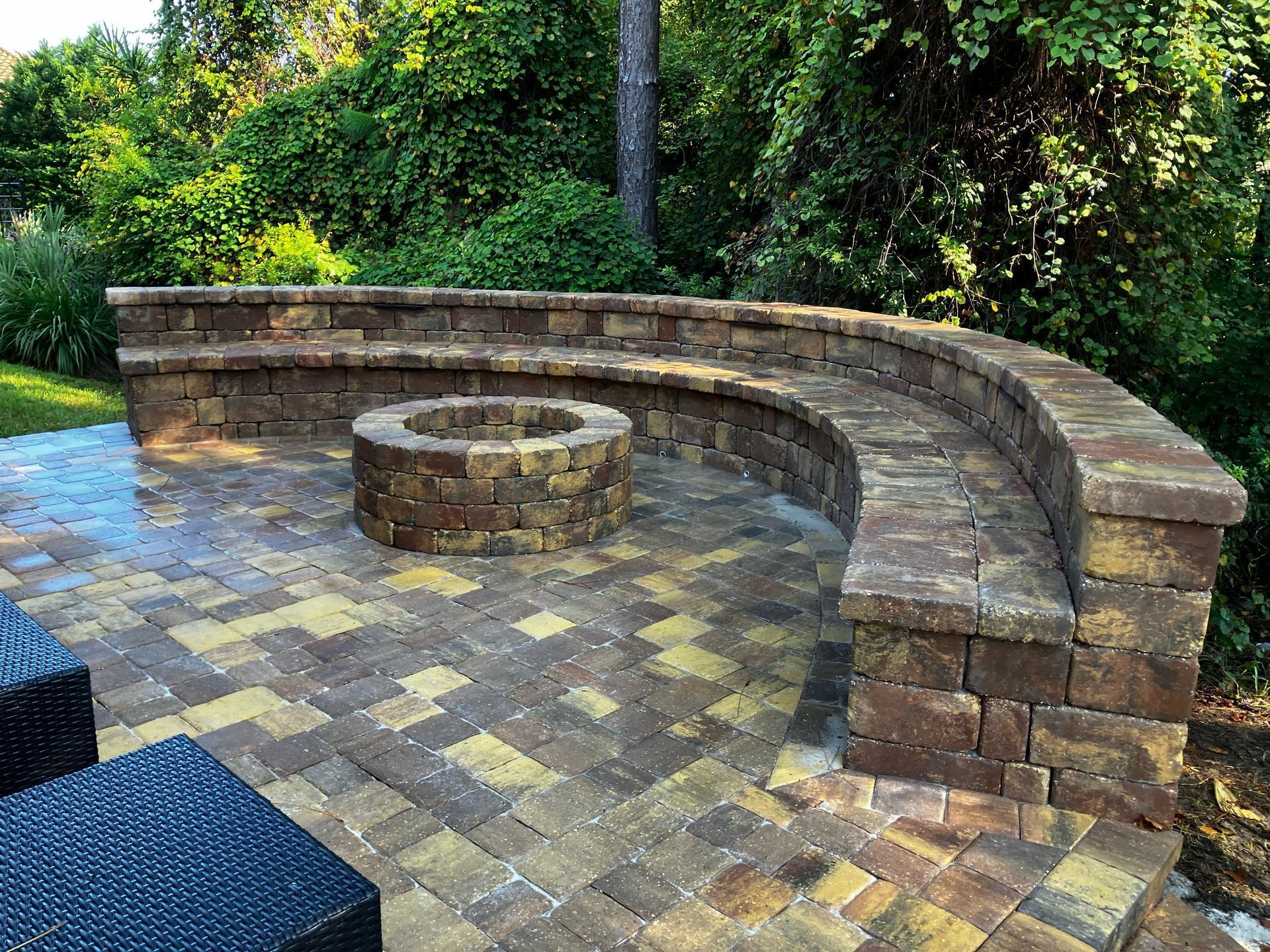How Paver Driveways Handle Florida’s Heat & Rain Better
A paver driveway in Florida has to deal with more than just traffic. Between scorching heat, heavy rain, and sandy soil, most driveways crack or fade way too fast. If you’ve ever had to patch up a cracked slab or deal with water pooling every time it rains, you know how frustrating it can be.
That’s why so many Florida homeowners are ditching old concrete and asphalt for paver driveways. They look better, last longer, and actually handle the Florida climate.
Let’s look at why pavers are the better choice and what makes them worth the investment
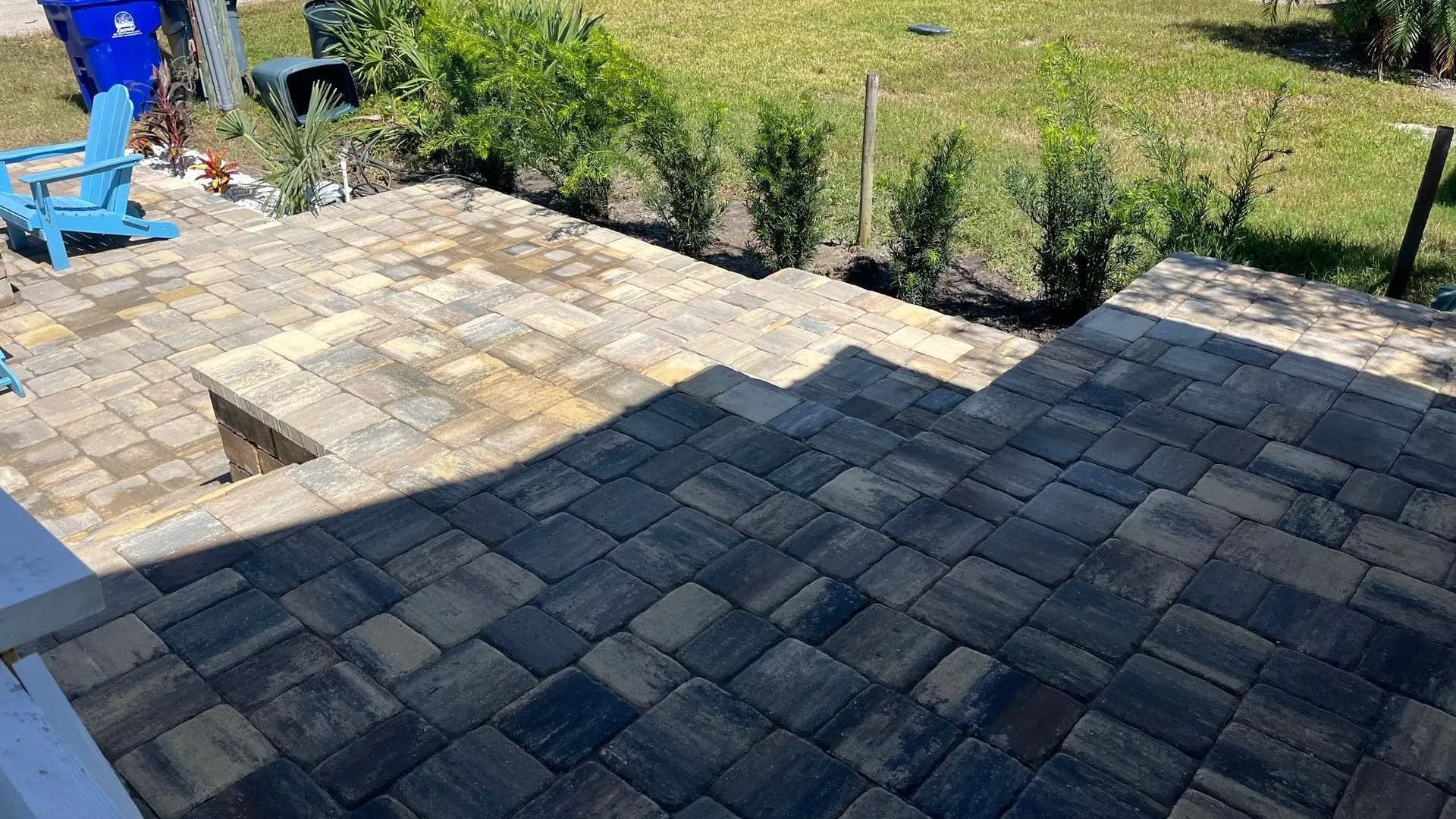
Why Florida Weather Is Hard on Driveways
Florida’s climate is no joke:
- Sunlight almost year-round
- Humidity and high temps
- Quick, heavy rain showers
- Hurricanes and tropical storms
These conditions can break down traditional driveway materials like poured concrete and asphalt. You’ll see:
- Cracks from heat expansion
- Faded color from strong UV rays
- Erosion and puddles from rain
- Shifting from stormwater and unstable soil
Your driveway needs to hold up through all of that—and most don’t.
What Are Paver Driveways Made Of?
Paver driveways are built with interlocking bricks or stones laid over a sturdy base. These pavers come in a variety of materials, such as:
- Concrete pavers – Strong and affordable
- Brick pavers – Classic, warm look
- Travertine pavers – Naturally cool, perfect for heat
- Permeable pavers – Great for drainage and runoff control
Each piece is placed individually, giving the driveway a flexible structure that can move with the ground instead of cracking. This flexibility is one reason they last so long here.
How Do Pavers Handle Florida Heat?
Florida summers are no joke. Concrete and asphalt can heat up fast, turning your driveway into a frying pan.
Pavers, on the other hand:
- Allow air to circulate between joints, helping cool things down
- Come in lighter shades, which reflect sunlight better
- Travertine stays cool, even on the hottest days—great if you walk barefoot to the mailbox or garden
That means less surface damage, cooler temps, and a more comfortable outdoor space.
How Do Pavers Help With Drainage and Rain?
Daily rain showers and stormy afternoons are part of life here. A driveway that doesn’t drain well can quickly become a puddle-filled mess.
Here’s how pavers help:
- Water flows between the gaps, not across the surface
- Permeable pavers soak water directly into the ground
- Reduced water runoff = less erosion and fewer drainage problems
Even after a downpour, a paver driveway drains fast and dries out quickly.
Are Paver Driveways Easy to Repair?
Concrete slabs can crack from even small ground movements. Florida’s sandy soil and stormy weather make that almost unavoidable.
With pavers:
- Each piece moves slightly with the ground
- Cracks are rare, and when they happen, only that one paver needs replacing
- Repairs are quick, simple, and affordable
This means less worry over time—and no major patch jobs every couple of years.
Do Paver Driveways Last Longer in Florida?
Yes—and here’s why:
- Pavers resist fading when sealed every few years
- They stay in place during hurricanes
- They handle Florida’s sandy soil better than slabs
With basic care (sweeping, rinsing, resealing), a paver driveway in Florida can last
30+ years. That’s longer than concrete or asphalt.
Why a Paver Driveway Adds Real Value to Your Home
Besides performance, pavers also look great. They add curb appeal and can increase your home's value.
You can customize your paver driveway with:
- Different colors: grays, reds, natural stone
- Custom patterns and layouts
- Smooth or textured finishes
Whether you're upgrading or prepping to sell, pavers offer real return on investment.
Frequently Asked Questions
Do paver driveways get too hot in the Florida sun?
Not usually. Many pavers reflect heat, and some, like travertine, stay cool even in the summer.
Will rain cause puddles on a paved driveway?
No, pavers are designed to let water drain between the joints. This helps prevent puddles and flooding.
Are pavers more expensive than concrete?
They cost more upfront, but they last longer and need fewer repairs. Over time, they can actually save you money.
Do pavers hold up during hurricanes?
Yes, the flexible design helps them stay in place during heavy storms. They resist cracking and shifting better than large slabs.
Can pavers fade in the sun?
Some fading can happen, but sealing the pavers helps protect their color. Most homeowners reseal every few years.
How long do paver driveways last in Florida?
With good care, they can last 30 years or more. That’s a lot longer than asphalt or unsealed concrete.
Florida Driveways Deserve Better—Start With St. Johns Pavers
Florida weather is rough on driveways, but pavers are built to handle it. They stay cooler, drain better, and last longer than concrete or asphalt.
If you’re tired of dealing with cracks, puddles, or fading, St. Johns Pavers can help. We install high-quality paver driveways made for Florida’s unique climate. Contact Us today to get started.
